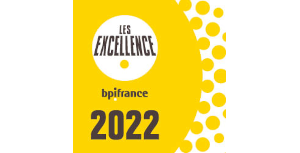Rule 313 of the Rules of Procedure of the Unified Patent Court (UPC) specifies the conditions under which a third party can intervene before the court. Specifically, Rule 313.1 allows a third party to request intervention at any stage of proceedings before the Court of First Instance or the Court of Appeal if they can demonstrate a legitimate interest in the outcome of the case.
The decision UPC_CFI_457/2023 from the Düsseldorf local division sheds light on the admissibility of such a third-party intervention, particularly when the third party is a patent pool manager and the conditions for standing to act.
More specifically, in this case, the plaintiff is pursuing the defendants for infringement of European patent EP 3 490 258. Additionally, the plaintiff has contributed its essential HEVC patent portfolio, including patent EP 3 490 258, to a patent pool. As part of this, the patent pool manager has been in discussions with the defendants for some time with the aim of concluding pool licenses.
At the same time as filing their defense, the defendants filed a request for the protection of confidential information under Rule 262A RoP. According to this Rule, persons necessary to ensure the parties' rights in the proceedings must be authorized to access the confidential information in question. This includes, at a minimum, one natural person for each party and the lawyers or other representatives of the parties in the proceedings.
In an order dated May 6, 2024, the Local Division in Düsseldorf granted the plaintiff's legal representatives access to the information classified as confidential by the defendants and gave them the opportunity to comment on the request for the protection of confidential information.
The plaintiff argued that the request could only be granted to the extent that the patent pool manager was also included in the group of authorized recipients, as the correspondence between the defendants and the manager, as well as the discussion of the license offers, were also at issue.
The defendants opposed the inclusion of the manager in the group of authorized parties on the grounds that a prerequisite for granting such access is the involvement of the person concerned in the proceedings. On this basis, there should be no fundamental objections to the manager's personnel accessing the information if the manager is involved in the proceedings, for example as an intervener.
On June 20, 2024, the manager submitted an application to intervene under Rule 313 RoP. None of the parties opposed the intervention.
Rule 313.1 RoP provides that a third party may make an application to intervene at any stage of proceedings before the Court of First Instance or the Court of Appeal when they can demonstrate a legitimate interest in the outcome of a case before the Court.
In this decision, the Local Division in Düsseldorf considered that the manager's request for intervention was admissible, noting in particular that the manager has a legal interest in the outcome of the proceedings (Rule 313.1 RoP). In this respect, the division recalls that such a legal interest exists if the intervener has a direct and current interest in the issuance of the order or decision sought by the supported party. An interest merely related to the grounds of the action is not sufficient. A distinction must be made between potential interveners who have a direct interest in the decision on the specific claim of the supported party and those who can only demonstrate an indirect interest in the outcome of the litigation. If the intervener’s position is merely similar to that of one of the parties, this is not sufficient to establish a legal interest (UPC_CoA_404/2024, order of January 10, 2024, App_584498/2023, para. 10; UPC_CFI_363/2023, order of April 22, 2024, ORD_5343/2024).
In the present case, the intervener manages the patent pool to which the plaintiff has contributed the patent at issue. The plaintiff entrusted the intervener with the licensing of the patent in question and the entire HEVC portfolio of the plaintiff. In this role, the intervener is also responsible for the plaintiff's FRAND (Fair, Reasonable And Non-Discriminatory) obligations and has been in negotiations with the defendants for some time regarding the conclusion of pool licenses. The defendants claim that the other party has not fulfilled its FRAND obligations and justify the FRAND objection they have raised, among other things, by what they consider to be deficiencies in the intervener's license offers. The intervener, therefore, has a legal interest in having the FRAND objection raised against it dismissed.
|
Thus, it appears that the required legal interest for the admissibility of the intervention is established if the intervener has a direct and current interest in the issuance of the order or decision sought by the supported party. Such a legal interest can be affirmed if the patent at issue in the litigation has been contributed to a patent pool by the plaintiff, the intervener has been tasked with fulfilling the plaintiff's FRAND obligations and granting licenses for the portfolio including the disputed patent, and the defendants argue that the other party has not fulfilled its FRAND obligations due to alleged deficiencies in the intervener's license offers. |













